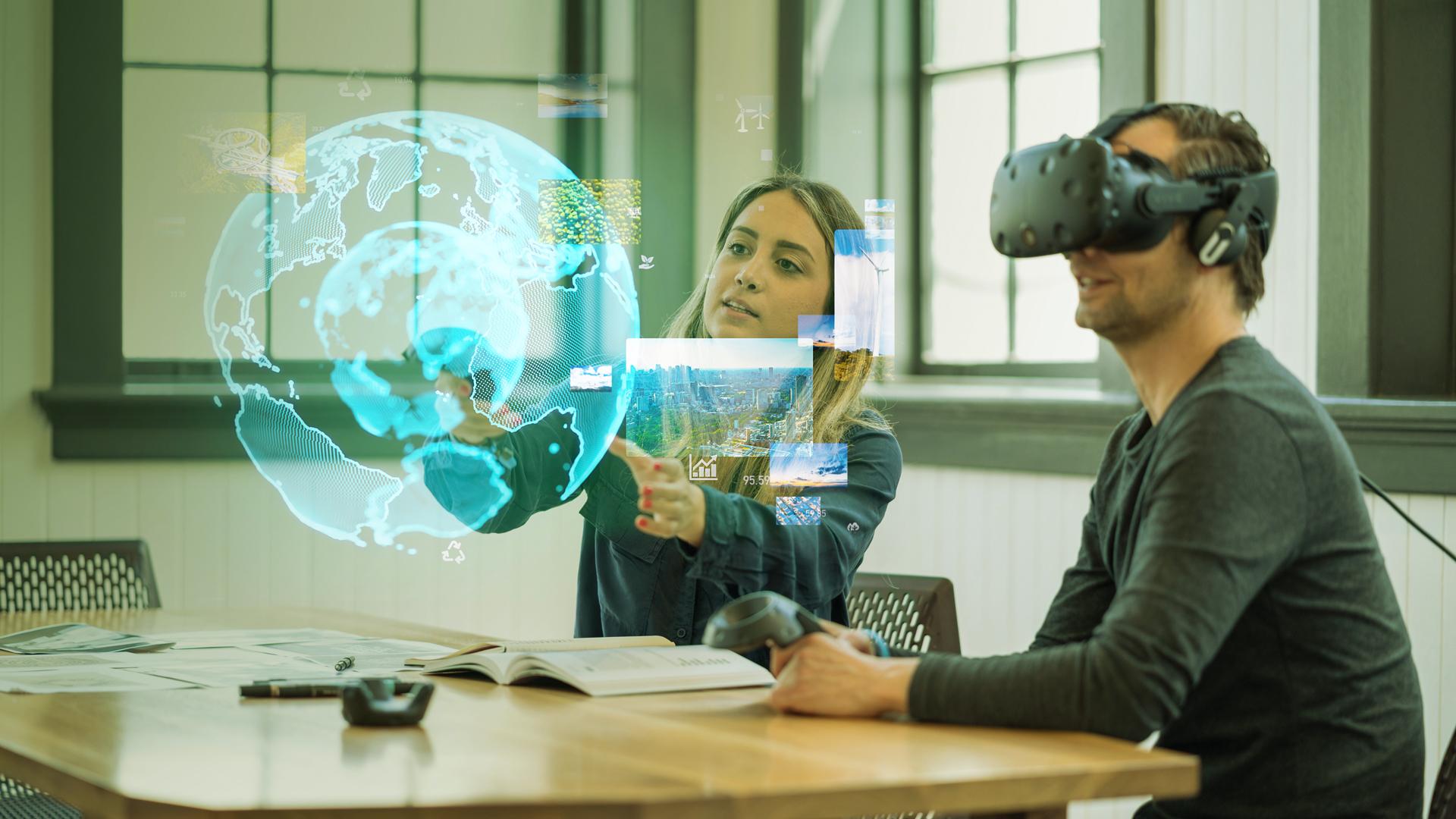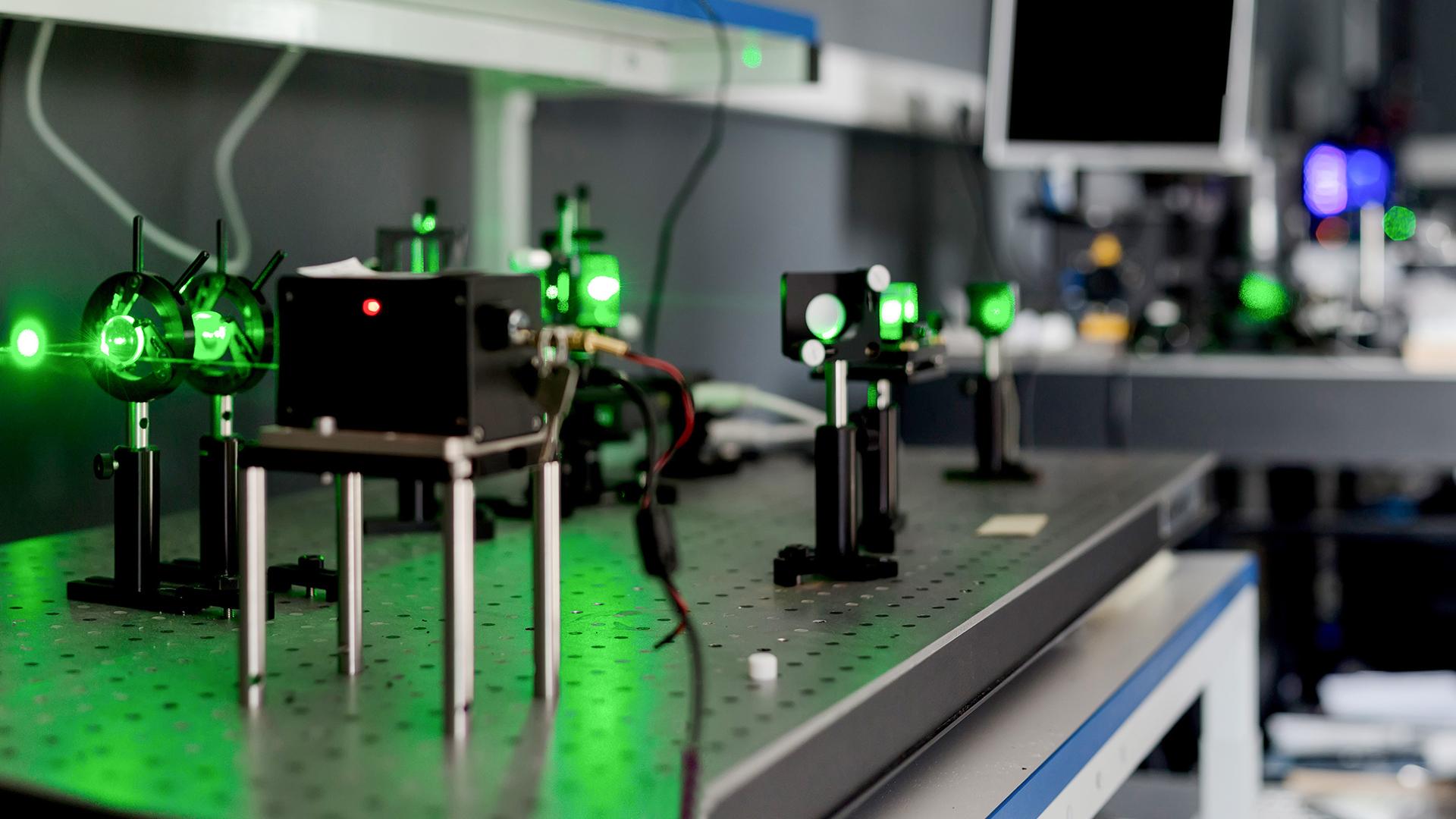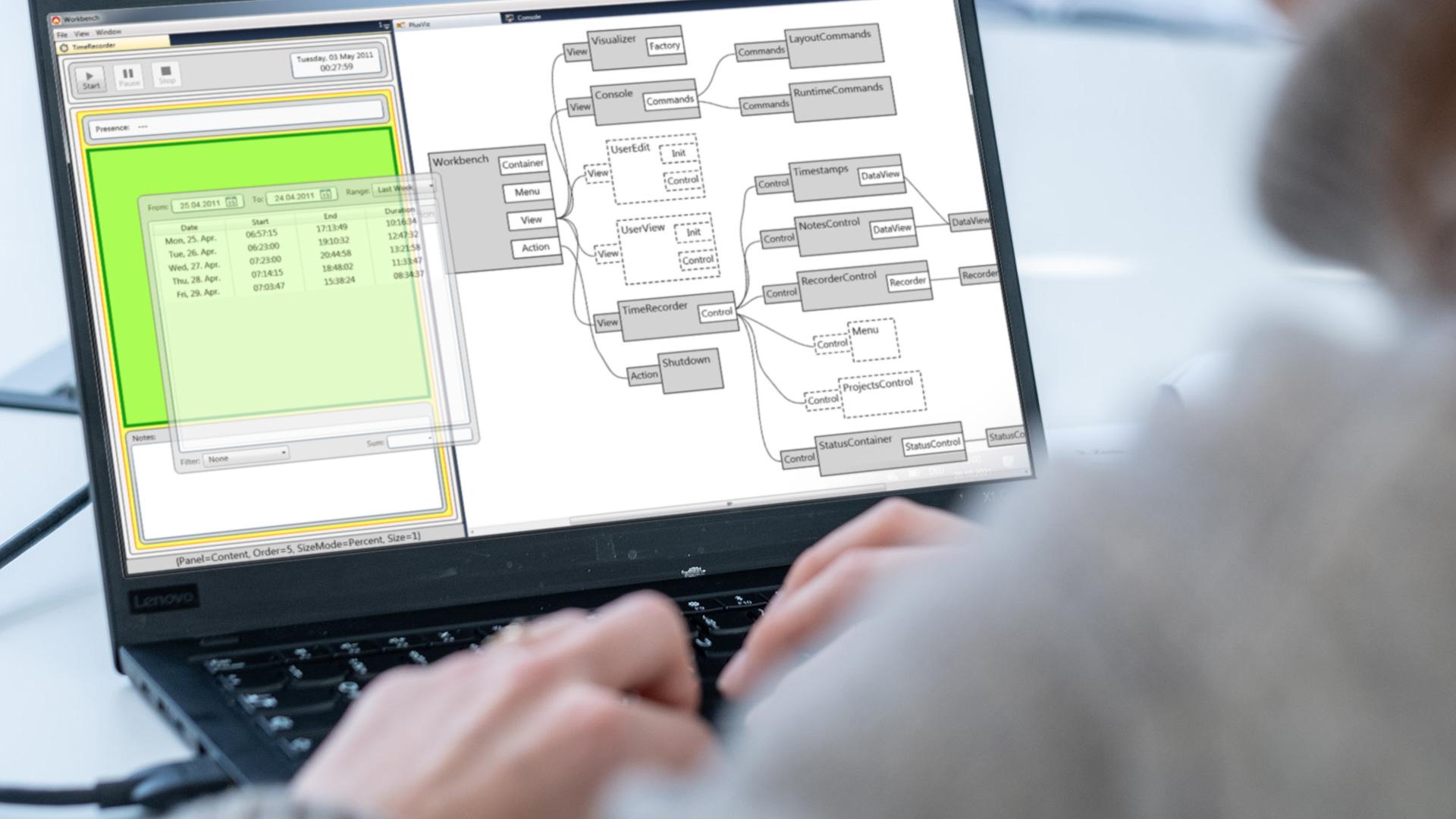Creative Solutions for a Responsible Digital Future
Digital technologies shape our world—and you help shape how these technologies are designed. The Master’s in Creative and Human-Centered Technology teaches you how to develop human-centered solutions. Technologies are specifically linked to real needs, promoting a more sustainable, inclusive, and responsible future.
Students learn the systematic development of interactive systems: from research-based problem analysis to strategic design and technical implementation. The spectrum ranges from the development of 2D/3D games to immersive XR applications and data-driven visualizations. You will become a bridge builder between people, design, and technology – empowered to make decisions that are both design- and technology-based and ethically reflective.
Graduates design digital experiences as UI architects, graphics engineers, game developers, XR specialists, design researchers, or product managers—in industry, startups, media companies, gaming studios, or NGOs. Subject to accreditation by AQ Austria, the program will start in fall 2026. Applications are now being accepted.
Program
The program offers a media computer science education for the 21st century: you will combine the fundamentals of computer science with digital design and learn how to professionally develop human-centered technologies from the initial idea to implementation.

In the first semester, you will learn how to use modern 2D/3D engines (Unity, Unreal, Godot) and advanced web development (scaling, state management, clean code). You will develop assets and deal with graphic design. In Ideation & Research, you will combine creative brainstorming with research methods for gathering usage requirements (observation, interviews, surveys). In addition, you will choose between specializations: advanced algorithms or interactive prototyping, game design, or design system management.
In the second semester, you will apply your skills in project work – either in a team or alone – such as an interactive dashboard for data analysis, a 2D/3D game, an immersive simulation for training or education, or a prototype for new VR interaction models. You will work with AI & gamification, simulation, and extended reality. At the same time, you will begin working on your master’s thesis and expanding your leadership skills in the area of digital leadership. Specializations: Visual computing & real-time rendering, interactive data narratives, AI-supported artificial worlds, or inclusive design.
In the third semester, you will continue your project and intensify your work on your master’s thesis. You will deepen your knowledge of UX evaluation and deal with digital ethics. Management modules cover entrepreneurship, IT law, and AI governance. Specializations: Multiplatform Development, Non-Traditional UI (Conversational Interfaces, Wearables), Cinematics & Sound, or Sustainable Design.
In the fourth semester, you will write an independent master’s thesis in the field of Creative and Human-Centered Technology, accompanied by regular presentations and peer reviews.
Facts
- Start of semester: September
- Duration: 120 ECTS, 4 semesters
- Degree: Master of Science (MSc)
- Language: German
- Mode: Part-time (evening form)
- Costs per semester:
- € 363,36 tuition fee (for students from EU/EEA countries) + € 25,20 ÖH fee
- € 3.000,00 tuition fee (for students from non-EU/EEA countries) + € 25,20 ÖH fee
Applicable exemptions from the increased tuition fee: Tuition
- Attendance times during studies: Monday & Tuesday 5:50 p.m. to 9 p.m., Friday 8 a.m. to 5:50 p.m.
- Recommended semester abroad (optional): 3, 4
The program is organized in a way that it can be studied alongside work: with a maximum of two evenings per week and one full day on Friday, it is very easy to combine work with study. The blocked attendance times create space for real project and creative work – also in collaboration with external partners.
Game Engineering – Expertise Beyond the Gaming Industry
Are you enthusiastic about games and tech-savvy? Game engineering is an important area of application in this degree program. You will design and develop computer games for various platforms, use modern game engines such as Unity and Unreal professionally, and combine game design with technical implementation: real-time graphics, AI algorithms, network architectures, and performance optimization.
The skills gained in game engineering go far beyond game development. Those who learn to implement complex systems with limited resources and high performance will master technologies and ways of thinking for real-time visualization in architecture and medical technology, VR/AR applications, and simulation systems in aerospace, automotive, and training. Game engineers therefore work not only in gaming studios and VFX houses, but also in companies in the simulation and visualization sector – areas with strong growth and a high demand for skilled workers in the DACH region.

Game development projects by students
Human-centered and smart Technology
In addition to game engineering, the program offers a wide range of specialization options in the strategic design of digital systems. You will learn to design complex interactions in a targeted manner, model realistic user flows, and use AI-supported design tools in a reflective manner. You will understand how to work on development from concept sketches to detailed specifications to production-ready handover – while confidently guiding stakeholders through decision-making processes. You will learn how to design scalable design systems that hold an entire company or product line together: building component libraries, controlling versioning, and incorporating sustainability and accessibility into the basic logic.
These skills go far beyond traditional UI design. They specialize in areas such as data visualization and storytelling, but also in accessible and inclusive design – skills that are becoming the legal standard through EU directives (WCAG, Accessibility Act) and offer companies a real competitive advantage. You can think across platforms: mobile apps, voice interaction, multi-device experiences, wearables. And you take into account sustainable and energy-efficient design, another differentiator for forward-thinking organizations that want to make their digital systems greener and more durable. Graduates work as UI specialists, design system architects, accessibility and sustainability experts, or media professionals—at tech companies, media houses, agencies, and innovative organizations. These specializations are not only in demand today, but are becoming a basic requirement for modern, responsible system design.

After completing this degree program, you will be able to
- Systematically analyze complex usage problems and independently develop innovative solutions: You will master qualitative and quantitative research methods, derive well-founded design requirements from them, and implement these in prototypes—scientifically sound and practical.
- Strategically design front-end systems, dashboards, and data visualizations: You will design robust, durable web systems based on solid architecture and design principles, as well as interactive interfaces for data-intensive applications.
- Implement 2D/3D real-time graphics and immersive systems: You will design realistic graphics applications using modern GPU technologies, adapt 2D/3D engines across platforms, and continuously optimize performance.
- Targeted use of extended reality and generative AI: You develop immersive simulations in AR/VR/MR and use generative AI for innovative character and world design in interactive environments.
- Managing complex projects independently: You coordinate interdisciplinary collaboration, communicate results convincingly, and make strategic decisions under uncertainty—doing so responsibly and ethically, especially when using AI.
Career Prospects
Advanced Frontend Engineering & Data Design
Architecture and design principles for long-lasting web systems, implementation in different digital ecosystems, as well as conception and usability assurance of data-intensive interfaces.
UI Architecture & Research
Research transfer into prototypes, evidence-based evaluation, accessibility integration, and target group-oriented presentations at tech companies, agencies, NGOs, and public authorities.
Game & XR Development
Development and adaptation of cross-platform engine projects (Unity/Unreal) and immersive simulations in AR/VR/MR for entertainment, healthcare, education, and training.
Realtime Graphics & Technical Design
Architecture and design principles for long-lasting web systems, implementation in different digital ecosystems, as well as conception and usability assurance of data-intensive interfaces.
Creative Technology & KI
AI-supported content, character, and world design for innovative experience development, combined with sustainability and ethical considerations.
Product, Innovation & Leadership
Planning projects through to market readiness, leading interdisciplinary teams, responsible use of AI, and impact-oriented communication in established organizations or your own start-ups.

Admission Requirements
The academic admission requirement is a completed bachelor’s degree in a relevant subject or an equivalent degree with at least 180 ECTS credits.
If equivalence is fundamentally given and only individual additions are missing for full equivalence, the program director is entitled to combine the determination of equivalence with the requirement to take exams during the program. To do so, applicants should have earned at least approximately 60 ECTS credits in the following core subject areas:
- Advanced technical subjects
- Computer science (e.g., programming, databases, operating systems, computer networks)
- Mathematics
Contact

Interim Program Director Master Creative and Human-Centered Technology
Degree Course Director User Experience Management
Senior Lecturer/Researcher

Administrative Assistant
Master AI Engineering / Master Creative and Human-Centered Technology
Application
The next step to study Creative and Human-Centered Technology is to apply via the online application system of the University of Applied Sciences Technikum Wien:
- The entire application process is handled via a dedicated application website.
- Your data is stored securely there and will be treated as strictly confidential.
- A registration system allows you to start an application and complete it at a later date.
- Once you have entered your user data and uploaded documents, you can also use them for future applications.





